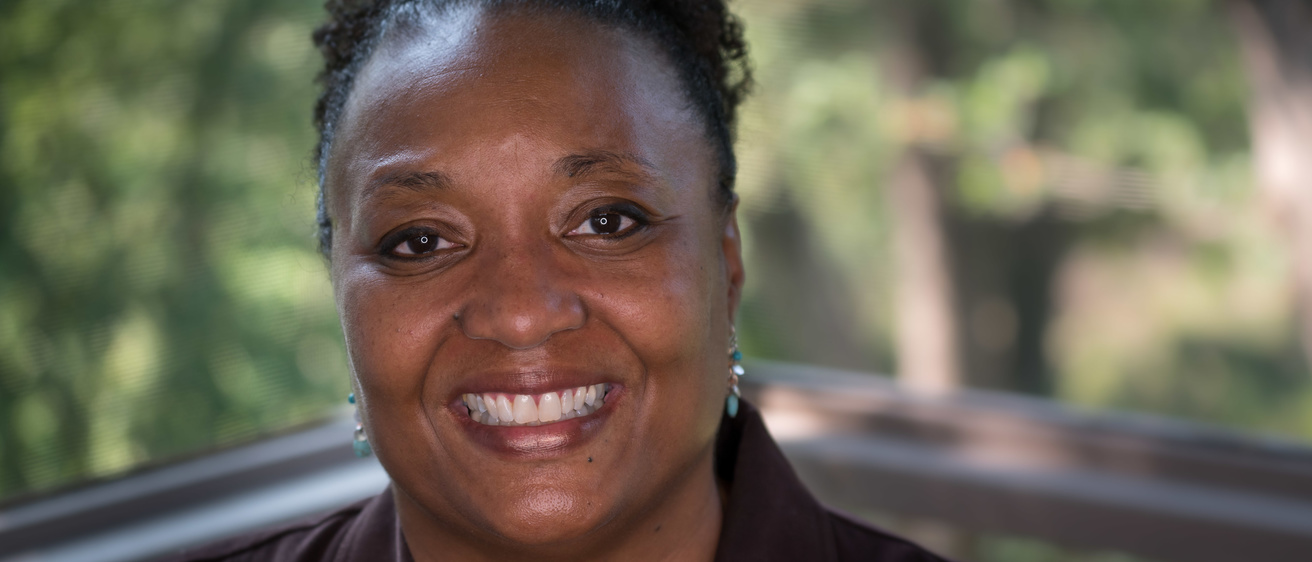University of Iowa College of Education’s Higher Education and Student Affairs Professor Sherry K. Watt was awarded the American College Personnel Association (ACPA): College Student Educators International’s Contribution to Knowledge Award for the research that she does on strategies for engaging across difference using practices that build stamina within the self and in relationships with others to sustain community.
Watt was nominated for the award by six of her colleagues from across the country, including John Mueller (Indiana University of Pennsylvania), Mary Howard-Hamilton (Indiana State University), Susan Jones (The Ohio State University), Raechelle Pope (University at Buffalo State University of New York), Ellen Fairchild (Iowa State University), and Terry Chadsey (The Center for Courage and Renewal).
“It’s really an honor to be nominated by colleagues who have led and shaped the profession,” Watt says. “I share this recognition with the many members of The Multicultural Initiatives Research Team (MCI). It’s humbling for our work to be selected as having an impact on our field. I’m thankful that people who work in educational settings and who think about the challenges facing our college campuses find what I do useful to them.”
Watt’s research spans more than 20 years, looking into practices that work to support authentic dialogue across different cultural experiences, particularly when there is controversy present. This work has led to co-editing a book “The Theory of Being: Practices for Transforming Self and Communities across Difference” (2022) along with Duhita Mahatmya, Milad Mohebali, and Charles Martin-Stanley, II.
“I have found that what my research and related practice does for me is that it makes me less tolerant of performativity. I don’t want people holding onto an image of what they think it means to be an inclusive, thoughtful practitioner. I want them to struggle through practicing what that means. I wonder about ‘What do you actually do when it gets hard to stay in dialogue? How can you stay in dialogue long enough to reach useful strategies for social change?’ Truthfully, I'd rather not have an award and instead work with people who actually want to behave in ways that change the world. But, if an award gets people to utilize the research and ask themselves those kinds of questions, I'm honored and grateful.”

The work behind “The Theory of Being” is ongoing and Watt acknowledges that her research will likely never end -- as society is constantly changing and her team explores how interactions play out through many different social experiences.
Watt and her colleagues explore the different types of defensive reactions that people have when they are engaged in difficult dialogues related to social issues. There is a conceptual model and an instrument that identifies types of defensive reactions.
“Everyone, especially when you think of social issues that are ambiguous and complex, wants an answer, they want to fix it. When you have a conceptual model and an instrument, people want to use it to diagnose and direct other people. The best use of our research is not to use it to diagnose, but instead as an internal guide for how you manage your own reactions and how you shape your behavior when working with others to address social problems,” Watt says. “These are ongoing ways of existing. We’re never going to find the answer. Our research focuses on the process and not just the outcome.”
The goal is to continue having productive discussions surrounding uncomfortable situations to better understand the people around you and to transform the community that surrounds you.
“You have to think with other people,” Watt advises. “Engage in ways that help you to work on your own biases and perceptions of the world, and ask yourself, ‘How do I translate that into my day-to-day life?’ You have to be personally accountable for that translation. Every time you do it for someone else, or you tell someone else to do it, in my view, you’ve missed it. You’ve not transformed yourself.”
